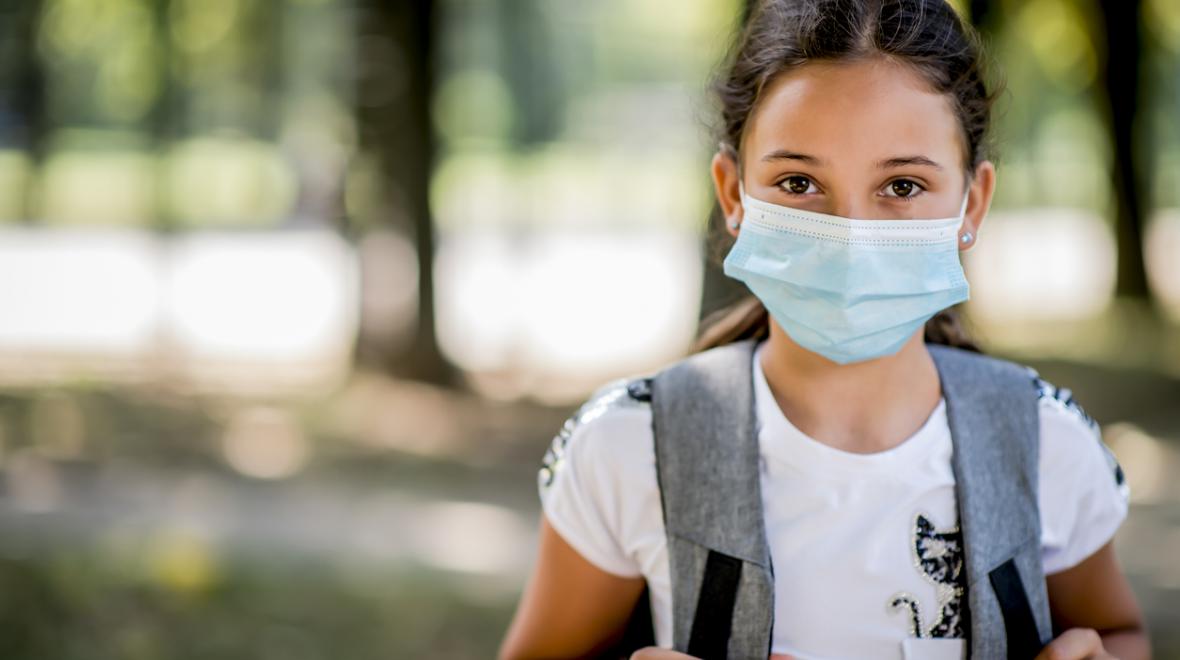
Are you the type to say things like “I’m worried sick,” “I can’t take any chances,” or “I prioritize safety over everything”? Do you have coronaphobia? (Yes, it’s a thing — look it up on the National Institute of Health website).
Whether you are a parent pondering your child’s return to school, socializing more or straying outside your pandemic bubble, you have worried about safety.
I consulted with a self-described “COVID-anxious” mother last week who had not been out of her house in 11 months and had only allowed her 11-year-old daughter, Bella, outside three times. Bella’s parents want her to return to in-person schooling because they know it will help her feel less sad, lonely and hopeless about her future. But they see her as fragile and the outside world as fraught with dangers, particularly pandemic-related ones.
The old maxim reminding us that “too much of a good thing is a bad thing” pertains to both protectiveness and encouraging independence. An optimal childhood with challenges faced that result in the development of competencies always involves some risk; we as parents want to balance risk with sound judgment.
As restrictions ease up on the pandemic lockdown, every parent will weigh the pros and cons of pandemic safety measures for their children and family. I call this calculation “R.A.T.S.”, an acronym for “Risk Assessment, Tolerance and Safety.” The title of my book “Wise-Minded Parenting” signals the importance of including emotional awareness, cognitive facts and personal intuition in parental decision making. When we are faced with difficult parenting decisions, such as “What’s good for my child and family” during a year of pandemic isolation, we need to integrate those three ingredients while we deliberate.
During the past year, parents have yearned for the benefits of in-person school and extracurricular activities to build their children’s social, emotional and academic competencies, and feared setbacks in all three of these areas. They are also concerned about the mental health effects of prolonged isolation which can manifest as depression, anxiety and suicidal ideation. However, depending on one’s risk tolerance, personal health situation, specific life circumstances and worry index, these same parents may forego the benefits of in-person social contact (even with COVID-19 safety precautions in place) due to perceived risks of infection.
Just like fear and anger, worry is an important emotional guide when it is accurate, appropriate for the situation and results in sound problem solving. When worry is excessive, unrealistic and persistent, it can destroy your mental health and hurt those around you. That’s where “coronaphobia” comes into play. Excessive worry impacts physical health, too.
At this point, virtually everyone knows what health experts advise for optimizing COVID-19 safety — wearing masks, social distancing and maintaining healthy habits of eating well, getting adequate sleep, exercising and avoiding substance use. But cognitive and emotional factors play a role in staying physically healthy also — which is what we call the “mind-body” connection. A fancy word for it is “psycho-neuro-immunology,” which refers to the effect of the mind on health and resistance to disease.
Although a direct link with COVID-19 has not yet been studied, it has been clearly shown over many decades of research that there exists a relationship between mind-body health and immunity against infections.
We want our family’s mind-body connections to be REAL STRONG. Here are the building blocks of what supports that goal:
|
Are Bella’s parents going to let her return to school next month with her classmates? They are mulling the pros and cons with their “wise minds.” But in the meantime, they’ve embraced the REAL STRONG goals since they want her immune system to be as strong as possible when and if she does.
Thankfully, there are lots of things we can do to act on these goals, instead of just giving in to fear and anxiety. Staying well is called “preventive” medicine, which is essentially health maintenance. Physical and mental health are intertwined. As most of you have figured out by now, what’s good for the body is good for the mind, and vice versa. Let’s keep building those blocks.











